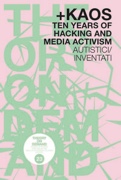L’integrità della memoria
[English version below]
Riceviamo spesso mail di avvocati prezzolati che ci intimano di rimuovere materiali sulla base di interpretazioni discutibili di leggi e regolamenti.
Abbiamo accumulato un certo livello di esperienza in materia e in molti casi si tratta di tentativi che sconfinano nell’ambito di veri e propri abusi di potere, finalizzati allo scopo di ripulire reputazioni di persone e aziende.
Quando questo accade ci soffermiamo a pensare come questo tipo di pressione sia efficace in modo inversamente proporzionale alle risorse umane ed economiche di chi riceve richieste del genere, specialmente quando non si tratta di utenti anonimi. È un pensiero che ci dà fastidio oltre a provocare irritazione, anche perché questa dimensione è poco nota ai non addetti ai lavori e quindi spesso sottovalutata, se non completamente sconosciuta.
Non avendo a disposizione le competenze in materia o i mezzi economici per farsi consigliare ed eventualmente difendere è facile cedere alla pressione, spesso per paura di conseguenze legali, e ancora piu’ spesso senza essere certi del fatto che una diffida iniziale possa poi di fatto diventare una vera e propria azione giudiziaria. Ci chiediamo anche come questo tipo di pressione venga gestito dai “giganti” del web. Quale livello di integrità hanno in queste situazioni, in cui la libertà di parola o di dissenso vengono minacciate? Quali distinguo fanno? A parte le tante notizie che denunciano una gestione scandalosa, non abbiamo a disposizione molti altri esempi di metodo applicato in questi contesti. Sappiamo pero’ come spesso, non avendo voglia di porsi domande di tipo etico o di dedicare tempo e/o soldi a possibili problemi legali, si preferisca senz’altro accogliere in maniera acritica le richieste di occultamento di articoli o di chiusura degli account (un esempio recente). La libertà di espressione non è un diritto, specie quando l’utente non è un cliente ma il prodotto da vendere a terzi sotto forma di dati personali. I social networks sono per natura evanescenti…
La nostra promessa è sempre stata quella di mantenere online i contenuti pubblicati dai nostri utenti, indicizzati e fruibili da chiunque voglia informarsi su qualsiasi argomento specifico che un nostro blog o sito voglia affrontare. Come difendere questi materiali dall‘erosione del tempo? Come fare per mantenere una memoria collettiva dei movimenti? Come tenere fede alla nostro manifesto di (R)esistenza degli anni passati? E sopratutto: come affrontare questo problema collettivamente?
Queste sono domande alle quali forse avevamo dato una possibile, decente risposta oltre 20 anni fa, con Indymedia. Ma nonostante i migliori entusiasmi e un grande ma temporaneo successo, oggi possiamo constatare come in quel caso non abbiamo risolto il problema in modo definitivo.
Alcuni anni dopo avevamo pensato che i blog potessero essere uno strumento in grado di rispondere altrettanto bene a quel tipo di bisogno, in modo esclusivamente tecnico. Stavamo sottovalutando però alcuni aspetti importanti. La cultura legata alla comunicazione è una risorsa collettiva, condivisa e caratterizzata da una forte componente di affinità e fiducia. È un processo fondamentalmente biunivoco: la fiducia deve essere condivisa oppure non c’è. È per questo molto difficile che la fiducia sia il risultato di una soluzione puramente tecnica, cosa peraltro sicuramente impossibile nel caso di una soluzione commerciale. Soprattutto sul lungo periodo.
Questo invece e’ il bisogno a cui pensiamo di essere riuscite a rispondere: quello di garantire l’esistenza di una piattaforma in cui sia le finalità che gli strumenti tecnici siano caratterizzati da un rapporto di fiducia (umana) reciproca. In particolare non una forma di fiducia automatizzata, opportunistica e legata al bisogno di instaurare un rapporto clientelare (siamo volontari e non abbiamo bisogno di utenti), ma una forma di fiducia basata su affinità politica, con l’ambizione di mantenersi intatta nel tempo. In effetti 20 anni non sono pochissimi. Ne parliamo anche con fierezza, ma non solo di orgoglio si tratta: è interessante notare come una iniziativa come la nostra, con finalità prettamente politiche e senza scopi commerciali, sia riuscita a mantenere contenuti online per così lungo tempo. Stiamo diventando, per certi versi, una sorta di archivio storico comune. Il che non è un risultato scontato per un organizzazione come la nostra. Anche per questo ringraziamo gli utenti che ci sostengono economicamente tramite donazioni.
Ci preme mantenere fruibili le pagine internet abbandonate dai progetti che le hanno animate, o aiutare le organizzazioni che hanno difficoltà a mantenere le proprie pagine accessibili e funzionanti nel tempo. Il rischio per questi contenuti è la loro vulnerabilità: la pressione della censura, nelle sue diverse forme, non diminuisce col passare degli anni.
Il nostro impegno per la preservazione dei contenuti storici quindi si concentra su questi tre fronti: fare da argine alle richieste di rimozione dei contenuti, fornire strumenti di pubblicazione sicuri che siano affidabili sul lungo periodo, mantenere un archivio.
Da qualche tempo abbiamo costruito https://archive.autistici.org/, un archivio storico con annessa Wayback Machine, dove archiviamo automaticamente i siti che risultano abbandonati da molto tempo, per garantirne la sopravvivenza tecnica, la cultura storica e la memoria (esempi: 1, 2, 3).
—-
English version
We often receive emails from hired “mercenary” lawyers ordering us to remove online content based on questionable interpretations of laws and regulations. We have accumulated a certain level of experience on the subject and in many cases these are attempts that border to being real abuses of power aimed at the purpose of revisiting and refreshing personal or enterprise reputations. When this happens, we stop to think about how this type of pressure is effective in proportion to the resources available to those who make such requests, especially when these threatening letters are aimed at not-so-anonymous users. It is a thought that bothers us and causes us some irritation, also because this dimension is relatively unknown to people not working in this branch and therefore often underestimated (if not completely unknown). Not having the necessary knowledge about the subject or the economic means to get advice and possibly legal defence, it is easy to give in to pressure because of fear of legal consequences, often without being aware of the fact that an initial warning will seldomly become a real judicial action. We also wonder how this kind of pressure is handled by the “giants” of the web. What level of integrity do they have in these situations, where freedom of speech (or dissent) is under threat? Where do they draw the line? Apart from the many news reports that denounce a scandalous management, we have few other examples of the method applied in these contexts. Often, not having the desire to ask themselves ethical questions or to devote time and / or money to possible legal problems, they certainly prefer to conceal articles or close accounts. Freedom of expression is not a right, especially when the user is not a customer but the product to be sold to third parties in the form of personal data. Social networks are ephemeral by nature…
Our promise has always been to keep online the contents published by our users, indexed and usable by anyone who wants to find out about any specific topic that one of our blogs or sites wants to address. How to protect these materials from the erosion of time? How to keep a collective memory of the movements? How to keep faith with our manifesto of (R)existence of the past years? And above all: how to address this problem collectively?
These are questions we may have given a possible, decent answer to over 20 years ago with Indymedia. But despite the best enthusiasm and a great (but temporary) success, today we can see that in that case we did not solved the problem permanently. A few years later we thought that blogs could be a technical tool capable of responding equally well to that type of need, but we underestimated some important aspects. The culture linked to communication is a collective resource, shared and characterized by a strong component of affinity and trust. It is fundamentally a two-way process: trust must be shared or it doesn’t exist. This is why it is very difficult to obtain trust from a purely technical artifact, and certainly impossible in the case of a commercial solution. Especially in the long run.
The need we think we answered to is in fact securing the existence of a platform in which both the purposes and the technical tools are characterized by a relationship of (human) mutual trust. In particular, not an automatic, opportunistic form of trust linked to the need to establish a customer relationship (we are volunteers and we do not need our users), but a form of trust based on political affinity that has the ambition to remain untouched over time. In fact over 20 years is not a very short time. We also talk about it with pride, but it is maybe more interesting to note how an initiative like ours, with political and non-commercial purposes, has managed to keep content online for such a long time. We became, in some ways, a sort of shared historical archive. This is not common for an organization like ours, and again we have to thank the users who support us financially with their donations.
We also want to keep usable the internet pages abandoned by the projects that initally produced them, and to help organizations that have difficulties in keeping their pages accessible and functioning over time. The risk for these historical political materials lays in their vulnerability: the pressure of censorship, in its various forms, does not diminish over the years. Our commitment to the preservation of historical content focuses therefore on these three fronts: acting as a barrier to the requests for content removal, providing safe publishing tools that are reliable in the long term, maintaining an archive. For some time we have built https://archive.autistici.org/, an historical archive with an attached Wayback Machine, where we automatically preserve sites that have been abandoned for a long time, to guarantee their technical survival, save their historical and cultural value (examples: 1, 2, 3).
This entry was posted on mercoledì, Marzo 2nd, 2022 at 7:11 pm and is filed under General. You can follow any responses to this entry through the RSS 2.0 feed. Both comments and pings are currently closed.

